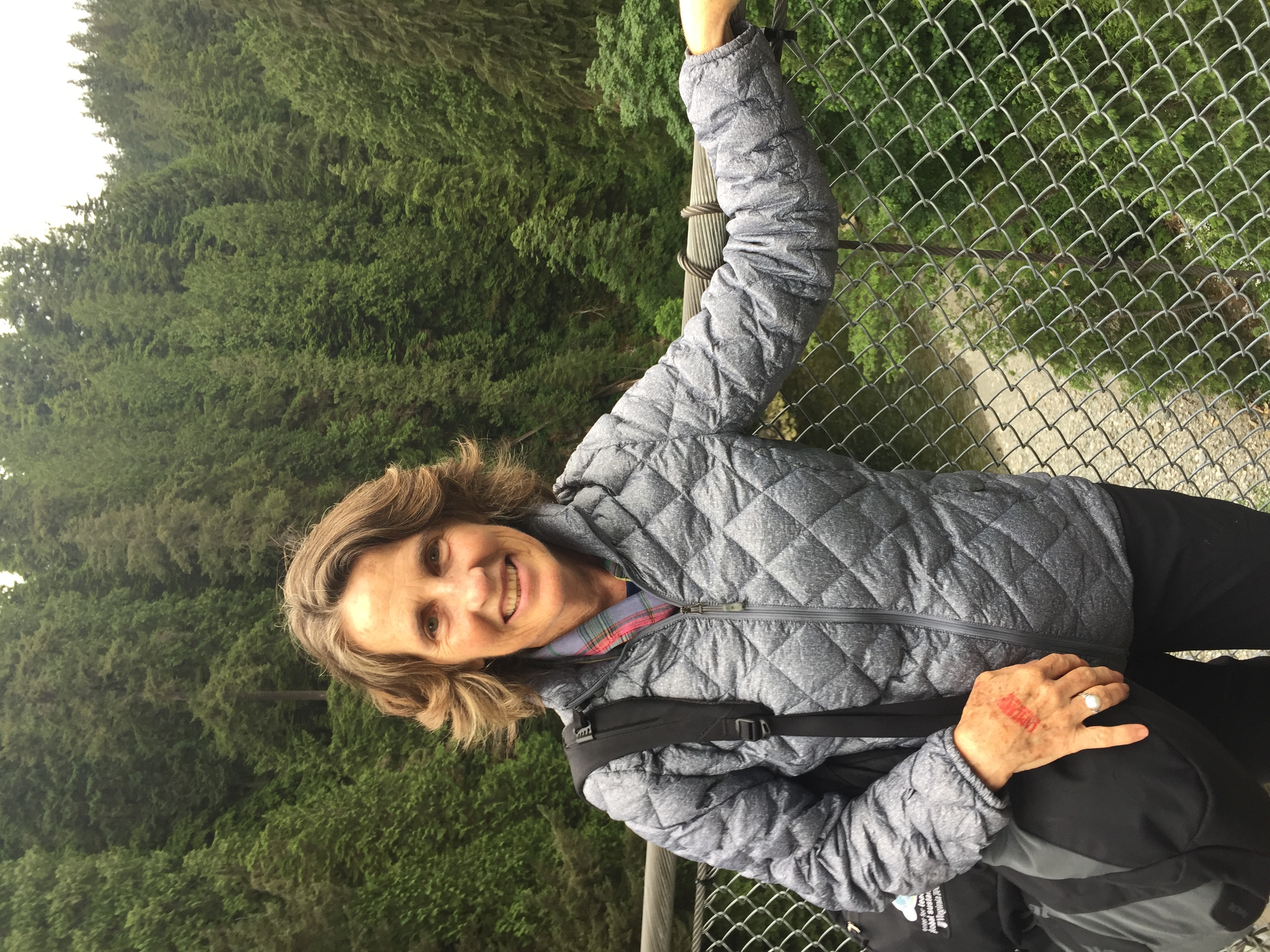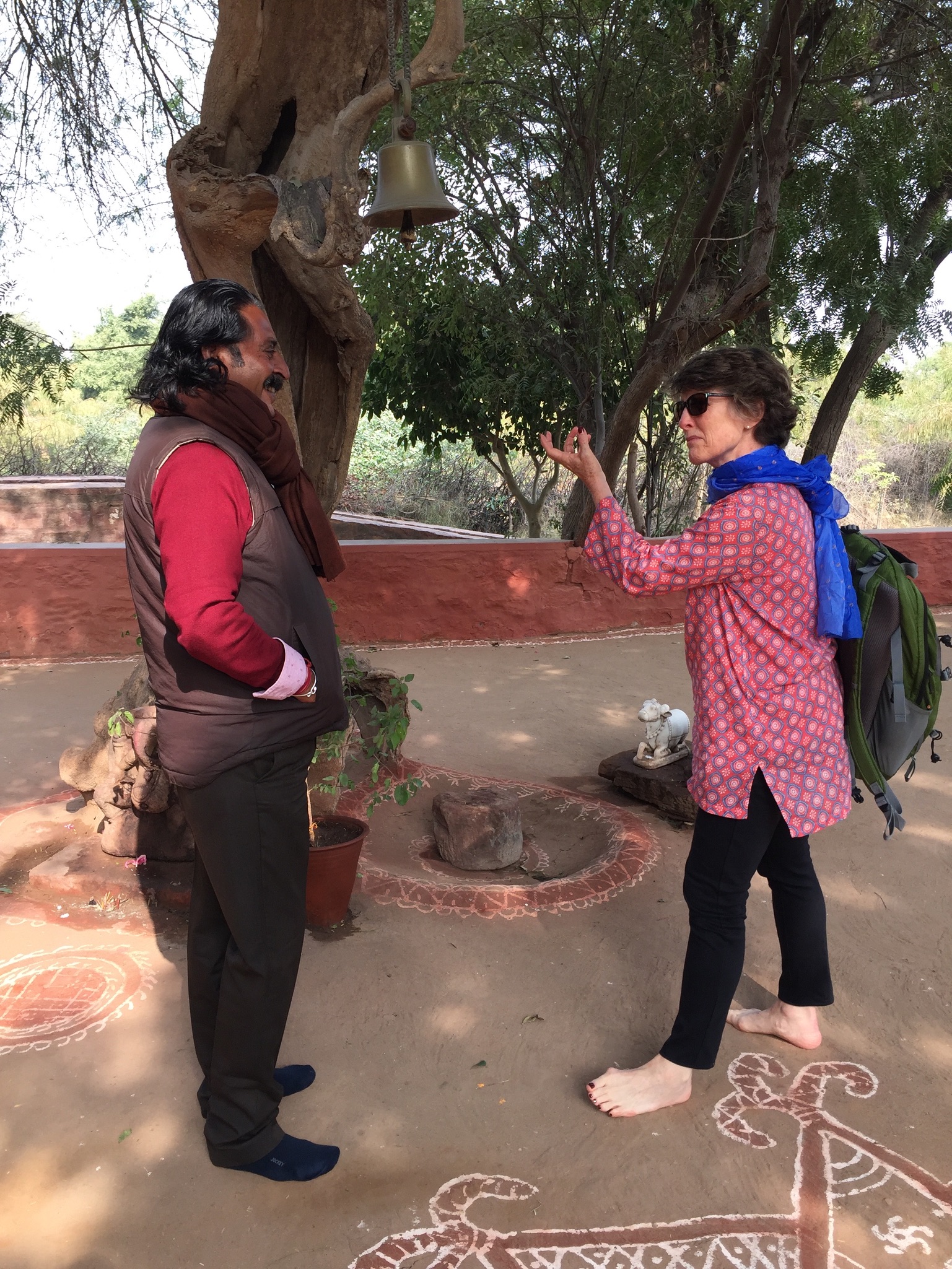Q&A with Holly Wise, an international development expert and MNR faculty
April 18, 2023

Holly Wise joined the Executive Master of Natural Resources (XMNR) faculty in 2012 to share her wealth of knowledge and professional experience in leadership for sustainability, especially systems leadership for sustainable development. During the past decade, Holly has shared her expertise with more than 300 XMNR students and traveled with them to conduct service learning projects in numerous locations including Egypt, India, Mexico, Morocco, South Africa, and Turkey. Her teaching, research, and consulting efforts focus on social innovation, public–private partnerships, corporate social responsibility and social performance, private sector engagement, and impact measurement.
Prior to XMNR, Holly enjoyed a distinguished career in the Foreign Service where she led systems change initiatives within the US Agency for International Development (USAID) and managed programs and projects in Africa, Asia, and the Caribbean. Holly is the founder and first Secretariat Director of the Global Development Alliance, USAID’s business model that forges strategic alliances between public and private partners in addressing international development issues. For more information on Holly’s career, expertise, and accomplishments, see her detailed Faculty Profile.
David Robertson, XMNR Program Director, recently interviewed Holly to reflect on these experiences and lessons learned. Here are the highlights of that conversation.

DR: What inspired you to pursue a career in sustainable development, and how does it relate to what you teach in the XMNR program?
HW: I have been an environmentalist for most of my life. I went to the very first Earth Day celebration in 1970! Growing up in the country, we lived the farm-to-table experience before it was a thing. Rachel Carson and Jane Goodall were early heroes of mine. My career took me overseas for much of it, with a focus on global development. The expertise I developed in partnership building, organizational change management, coalition and team strengthening, and leadership—all are things I learned by doing. I bring those, and a zeal for engaging with graduate students wanting to make a difference, to the XMNR program.
DR: What drew you to the XMNR program and what keeps you engaged?
HW: I was drawn to the program in its earliest days by the opportunity to share my experience and stories and to be part of a community of faculty and students that are leaning in on some of the most critical issues on the planet. What keeps me engaged is the challenge of delivering an integrated curriculum weaving sustainability and leadership content for those that are deepening, or pivoting to, work on global sustainability.

DR: How have your career experiences prepared you for teaching in the XMNR and advising students?
HW: Twenty-six years in the foreign service, over ten years of consulting, years of graduate-level teaching experience, and significant nonprofit-board work have equipped me with the frameworks, networks, tools, and practitioner "chops" to deliver content and stakeholder voice.
DR: I’m glad you mentioned “stakeholders.” As you are well aware, stakeholder analysis and engagement is something we emphasize throughout the XMNR curriculum, including class projects with and for real world partners. From your own experience, why is it important for sustainability professionals to have these skills?
HW: Sustainability professionals need to be able to understand systems and all their components and relationships to make sense of situations. Stakeholders are part of these systems. Developing empathy for those impacted and those who can impact a situation is the necessary first step to engagement and human-centered design interventions.
.png)
DR: In the classroom, you focus on case studies. Why are cases valuable for environmental and sustainability professionals?
HW: I believe, as Muriel Rukeyser said in her book The Speed of Darkness, “The universe is made up of stories, not atoms.” Stories are how we make sense of the world, understand linkages, context, and critical events. Teaching cases, developing and sharing cases, is a form of story creation and storytelling. Being able to make sense of complex situations through mapping and storytelling leads to common understanding, and often solutions, while giving voice to those who otherwise may not have it. This is the work and I am so excited to be involved in it.
DR: Storytelling is something you are good at and do quite naturally. Is storytelling something that can be taught and learned? Do you have any good examples to share?
HW: Everyone has a story, and everyone can tell their story. And yes, storytelling skills can be learned; we teach some of them in the XMNR. Whether it is improv, presentation skills, case writing, 3SO situational analysis, system mapping, ESRI ArcGIS Storymaps, or “TED Talks,” these are some of the tools we use to harvest and share stories.
DR: What advice do you have for today’s environmental and sustainability professionals (current and aspiring) who want to have more influence at work and impact in their communities?
HW: Work on empathy and up your emotional intelligence. Lean in with humility, not fear.
DR: Why are these “soft skills” like empathy, humility, and storytelling so important for leading change? Do you have any examples from your own experience of how these skills have helped you have influence and impact in the world?
HW: The soft skills are critical for leading change and, by the way, are what employers are most seeking in recruitment, according to a recent survey by a global consulting firm. Teamwork, influence without authority, enthusiasm for change, the ability to communicate both verbally and in writing—these are essential skills.
I got great advice a while back, to focus on the how of what I was trying to do in change management. I was told—and I listened and acted on it—to applaud those who had been working on partnerships already, to turn opponents into champions through engaging them in co-creation of the new vision, and to celebrate others and make it not about me but about them and the collective work.
DR: During your career, how has the profession changed? What do current professionals need to know and be able to do differently today than when you first started working in this field?
HW: When I first started working in the field it was all about environmental cleanup, pollution prevention, and a regulatory approach to compliance. The US Environmental Protection Agency (EPA) was established during this time. It was also a government-led space. The non-governmental organizations, like World Wildlife Fund (WWF) and World Resources Institute (WRI), were fledgling actors. Most jobs in sustainability were in research, enforcement, or activism. Fast forward to today and the actors are many: from financiers, to corporations, to philanthropies, NGOs, international organizations, and governments at all levels. A successful sustainability professional in this space needs to have the 3-D vision to be able to crosswalk between public, private, and nonprofit sectors; identify common cause; and mobilize resources through working in partnership with others on wicked challenges of the anthropocene.
DR: Do you have any advice to share with new students considering the XMNR graduate degree program?
HW: Run to the program. Use the safe space of the cohort and the classroom to experiment, get feedback from peers and professors, and take advantage of all the content the program has to offer. Be bold and take risks with the confidence, skills, and network you will develop in the XMNR.
Thank you, Holly, for continuing to share your story with our students!


